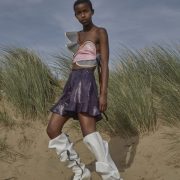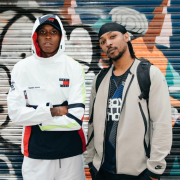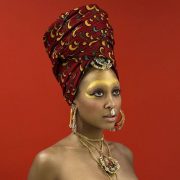What does sustainable fashion actually mean?

There has never been a more important time to be a conscious fashion consumer. The cost of clothing is not worth the negative environmental and ethical impact it can produce. New designers need to be fully aware of this and discover new processes to produce their clothes.

Sustainability is a new buzzword in fashion. If the word sustainable isn’t in the description of your brand, then you must be doing something wrong. The new conscience consumer is aware that fashion is damaging the planet and wants to be able to spend guilt-free. However, I think it’s important that we start to investigate what actually makes brands sustainable. It’s very easy to use the term as a marketing tool, “my brand is all about empowerment and oh it’s sustainable too!” Being sustainable shouldn’t be a method to sell products, brands should just simply obtain sustainable processes. This way sustainability will eventually become the standard. When brands push sustainability or being vegan too hard, for a consumer it feels like that’s all they are.
Newer designers have caught on to the need for a sustainable industry, plenty of graduate collections are exploring new ways to create. In order to be sustainable, a lot of work and research is required. Fashion Revolution’s ‘Who made my clothes‘ campaign means that big brands like Zara and H&M had to show their factories, something which wasn’t always the case. Being sustainable means to ethically source, make and produce clothes, it isn’t just if a t-shirt is 100% organic cotton. Sustainability also means that the person who made the garment has good living conditions and is well paid. It also means that waste is handled in an ethical way.
Here are three designers who have created sustainable processes…
Alero Jasmine

Alero Jasmine is a fashion brand that prides itself in being ethically sourced and handmade with unique designs that express creativity and culture.
So I don’t think we’re putting a heavy emphasis on solely positioning ourselves as a ‘sustainable brand’. The meaning can be quite ambiguous in fashion. When people hear the word sustainable and ethical they think ‘expensive’ ‘overpriced’ which is really unfortunate. That’s why I like to evoke a sense of discovery with the brand. People are drawn in by the vibrant clothing and then are reanimated with the fact that the clothing is made by underprivileged Lagosian artisans.
Martina Spetlova

Martina Spetlova is a fashion designer from the Czech Republic, now based in East London. After studying at Central Saint Martins she started her label that creates timeless luxury clothing and accessories.
Alongside her uncompromising design aesthetic, Martina is committed to sustainability and ethical sourcing throughout her supply chain. She partners with sustainable and organic suppliers, and her chrome-free leather is hand woven by Syrian artisan refugees in a women’s social enterprise.
Quoï Alexander

Quoï Alexander is a fashion brand based in Paris. He uses experimental designs and creates garments in non-traditional methods. All construction is handmade.
I like to mix as many fabrics as I want to, I choose from everywhere, sometimes a lot of my fabrics I find in junkshops, I’ve also got into a lot of factories. I use their waste and all the leathers I use are extra from fashion houses and factories which don’t use them because they have mistakes or something but because I cut everything into small stripes, it doesn’t matter if there are some mistakes I can still use it. I like the idea of using waste, I like to give value to waste, because I don’t really believe in the hierarchy of things.





![ZINO VINCI’S ‘FILTHY & DISGUSTING’EP BRINGS YOU TO THE CORE OF THE ARTIST [@ZinoVinci]](https://guap.co/wp-content/uploads/2023/10/Zino-4.jpg)



